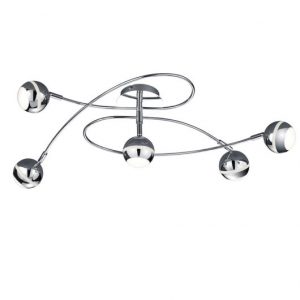Event SEO for Liverpool – how to capture post-pandemic live audiences
Liverpool’s live scene is back. With a large visitor economy and millions of annual visits, event search is a high intent channel for promoters, venues and local businesses that want to sell tickets and attract visitors. If you are a Liverpool SEO company or working with one, this guide will help you build event pages that convert searchers into attendees.
1. Why event SEO matters in Liverpool right now
Liverpool hosts conferences, concerts and festivals across major venues such as ACC Liverpool and M&S Bank Arena. Optimising for event search puts you in front of people who are ready to buy tickets or plan a visit. A Liverpool SEO company can help organisers and venues prioritise the right pages and schema so they capture high intent traffic quickly.
2. Keyword research: focus on intent and locality
Start with seed keywords, then expand by intent and local modifiers.
- Transactional: “buy tickets Liverpool [artist/festival]”, “Liverpool comedy tickets”
- Informational: “what’s on in Liverpool this weekend”, “Liverpool festival dates 2025”
- Local modifiers: venue and neighbourhood names, for example “M&S Bank Arena Liverpool tickets”, “Sefton Park events”
- Long tail: “family events Liverpool bank holiday”, “indie gigs Liverpool tonight”
Map keyword buckets to specific pages: event detail pages for transactional terms, round ups and blog posts for informational queries.
3. On-page essentials for event pages
Treat each event page like a product page and a local landing page at the same time.
Title tag
Keep it clear and clickable, include event, venue and date where possible. Example:
Inhaler | M&S Bank Arena Liverpool | 11 Oct 2025Meta description
Write for click through. Mention date, ticket action and a unique selling point in 120 to 155 characters.
URL
Keep it short and descriptive, for example:
/events/inhaler-m-s-bank-arena-2025H1 and content
H1 should mirror the event name and venue. Include a short lead with date and a visible ticket CTA, then sections for About, Tickets, Venue details, Accessibility, FAQ and Nearby information.
Images and media
Include a hero image, venue map and seating plan. Use descriptive alt text such as “Inhaler M&S Bank Arena Liverpool stage photo”.
Tip: add Event schema so Google can display rich results showing dates and ticket availability.
4. Event schema example (JSON-LD)
Paste one of the JSON blocks below into the page head or into the HTML of the post. Edit the values to match your event.
5. Local search and Google Business Profile
For venues and recurring organisers, keep the Google Business Profile up to date: hours, event posts, images, categories and Q&A. Use Posts to promote events and link to the event page using UTM tags. If you run a box office, ensure phone numbers and booking links are visible. A Liverpool SEO company can also manage recurring GBP posts and monitor insights so you see which events drive the most clicks and direction requests.
6. Technical checks specific to event sites
- Mobile first. Test and fix mobile usability issues.
- Crawlability. Ensure event pages are in the sitemap and not blocked by robots.txt.
- Canonicalisation. Use self canonical or canonical to the primary event page for ticket variations.
- Page speed. Avoid heavy third party widgets or use deferred loading so pages load quickly.
- Calendar feeds. If you offer iCal or Google Calendar links, ensure they point back to the canonical event page.
7. Content strategy: beyond the event page
Create supporting content to capture broader queries and build topical relevance.
- “What to expect at [Event]” articles for featured snippets.
- Round ups such as “Top things to do in Liverpool this bank holiday” to capture seasonal traffic.
- Neighbourhood guides linking to nearby pubs, hotels and transport.
- Artist profiles and interviews to attract backlinks and social shares.
- FAQ sections on the event page and FAQ schema where useful.
8. Link building and partnerships
Local, high authority links help rankings. Target venues, local press, culture blogs, university societies and tourism bodies for cross promotion and listings. Practical outreach templates and a short prospect list will make outreach scalable and measurable.
9. Paid and owned promotion to boost organic results
Use short term PPC to dominate the SERP for high intent terms during ticket sale windows. Retarget users who visited the lineup but did not buy. Coordinate social posts and GBP posts to match search peaks. Combine paid social and organic content to maximise awareness in the lead up to the event.
10. Measurement: what to track
- Ticket conversions and revenue by source. Use UTM parameters for all campaign links.
- Assisted conversions for content and PR campaigns.
- Page engagement: bounce, time on page, and scroll depth for event pages.
- Local metrics: GBP calls, direction requests, and clicks to website.
Set up simple dashboards that show tickets sold by channel and pages with highest drop off so you can iterate quickly.
11. Quick checklist you can use now
- Create a short, descriptive URL and clickworthy title.
- Add Event JSON-LD with offers and venue details.
- Add a clear, visible ticket CTA above the fold.
- Include venue address, transport options and accessibility information.
- Post an event update to your venue GBP with a booking link.
- Build at least three local links: venue, local press and a tourism listing.
- Add UTM tags to all paid and social links and monitor conversions.




